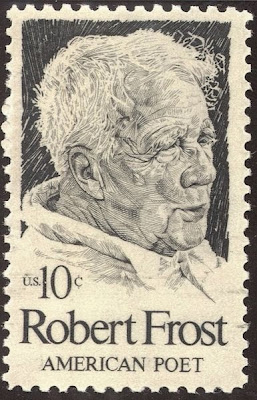A four times Pulitzer Prize winner, laureate poet Robert Frost could hardly have been more popular in his life-time, becoming a truly American icon, who represented the essence of the good old values of pastoral, bucolic New England. Yet, as his art escaped the "clutches of the academics"—breaking free from the narrow boundaries of an elite readership, and reaching out to the general public—something went lost. Once his work triumphantly entered mainstream culture, the understanding of his poetry greatly diminished: famous verses of his best works passed down amongst his readers as simplified, lame mantras. However, the waters of his art are the farthest from shallowness, but deep, troubled, and often dark.
It is well remembered how, in 1958, at a celebration for the poet's 85th birthday at the Waldorf-Astoria, the featured speaker, literary critic Lionel Trilling, shocking the audience, proclaimed: ''I regard Robert Frost as a terrifying poet." Old Frost did not appear the least bothered; intimately, he might as well have nodded with satisfaction.
It is well remembered how, in 1958, at a celebration for the poet's 85th birthday at the Waldorf-Astoria, the featured speaker, literary critic Lionel Trilling, shocking the audience, proclaimed: ''I regard Robert Frost as a terrifying poet." Old Frost did not appear the least bothered; intimately, he might as well have nodded with satisfaction.
In the lecture presented below, Professor of English Kevin Murphy
(Ithaca College, 1992), brings to light some of Frost poetry's inner
implications that, surprisingly enough, had been long overlooked.



